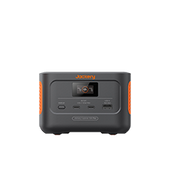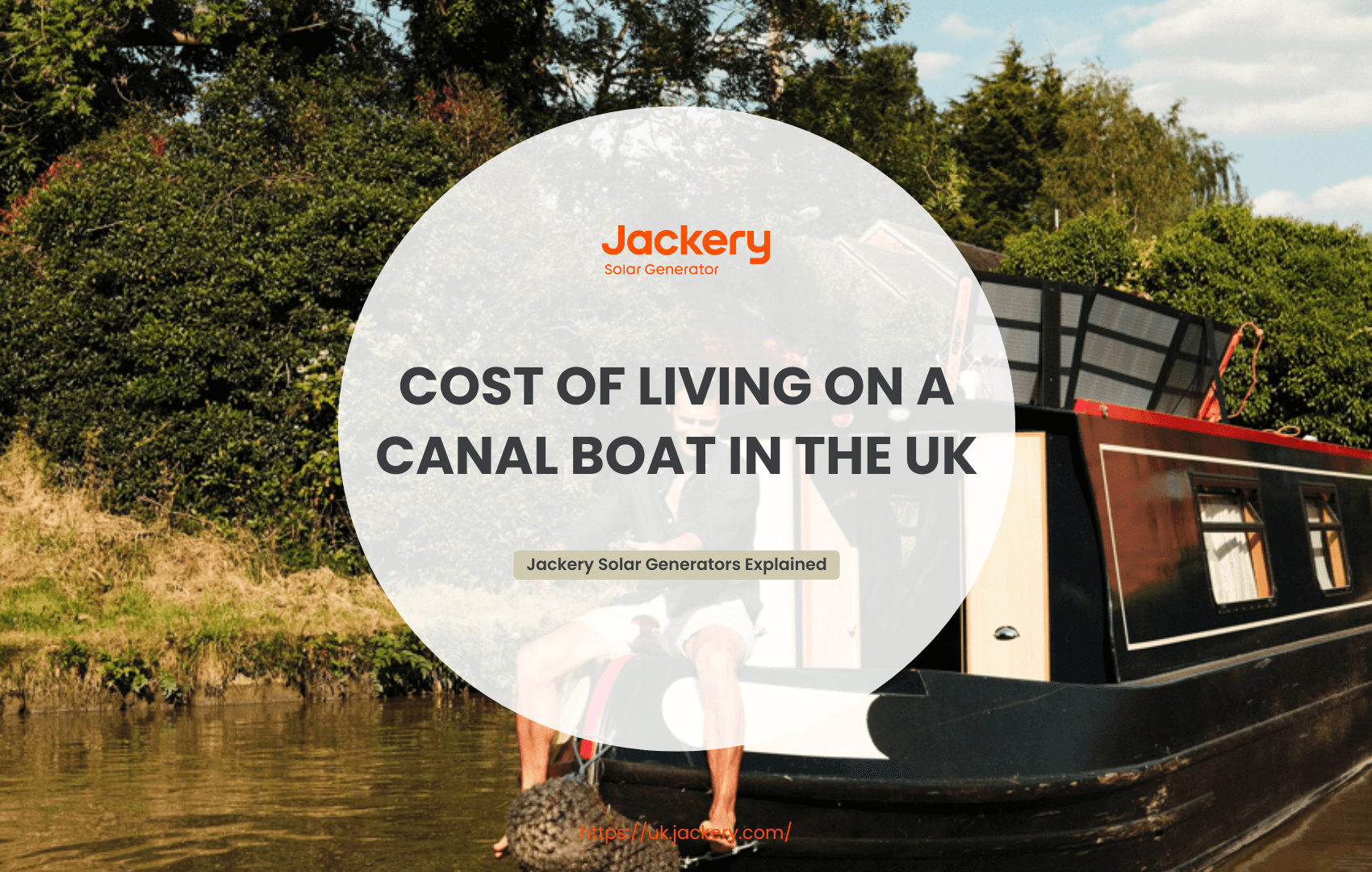Northumberland, England's northernmost county, is a fantastic playground for outdoor enthusiasts. It is famous for its stunning scenery, including the rolling Cheviot Hills, vast, virgin moors, and the beautiful Northumberland National Park. This surely appeals to outdoor enthusiasts looking for wild camping excursions.
So, is wild camping permitted in Northumberland? Unfortunately, wild camping without the landowner's permission is banned in Northumberland. However, obtaining permission is not difficult. If you want to camp in Northumberland, please read the following and prepare yourself.
|
Key Takeaways: |
|
Is Wild Camping Legal in Northumberland?
Instead of using the amenities of a campsite, wild camping entails finding a pleasant, off-the-beaten-path area to experience the wild outdoors.
Northumberland, England's northernmost county, is known for its spectacular beauty, which includes the undulating Cheviot Hills, the iconic Hadrian's Wall, and the stunning Northumberland National Park. Northumberland's breathtaking natural beauty makes it an ideal location for wild camping, but is it legal? Here is a closer look.
Is Wild Camping Legal in Northumberland?
The restrictions for wild camping differ across the United Kingdom. Except in Scotland, unauthorised wild camping (i.e., without the landowner's consent) is prohibited in Northern Ireland, Wales, and the majority of England.
This includes Northumberland, where almost all of the land is privately owned and wild camping requires permission from the landlord. Otherwise, overnight parking is prohibited except at designated campsites. This can be difficult for people looking for a secluded, peaceful, and noise-free wild camping location in Northumberland.
Are There Penalties for Illegal Wild Camping in Northumberland?
If you are caught wild camping on someone else's property without their express permission, the landowner will often ask you to leave, and the situation will be settled.
If you refuse to leave or are a repeat offender, the situation could worsen. At this stage, you could be committing aggravated trespass, a criminal offence. The landowner may then report the trespass to the police, and you could face a fine or arrest. The maximum penalty is three months' imprisonment, a £2,500 fine, or both. However, this may be more applicable to individuals who use automobiles for covert wild camping than to those who camp in tents.
Even with Permission, Are There Precautions for Wild Camping in Northumberland?
Even with permission, wild camping in areas like Northumberland, home to a stunning yet fragile natural environment, is subject to strict regulations designed to protect ecologically sensitive areas. Here are some general rules you should be aware of and follow when wild camping:

Rule 1: Leave No Trace
This is the most essential principle. The goal is to leave your campsite looking exactly as you found it. This includes principles such as properly disposing of all trash (including food scraps), not disturbing wildlife or disrupting their habitat, and, crucially, not lighting campfires.
Rule 2: No Vehicles
Vehicles can damage fragile ecosystems, compact the soil, and destroy wildlife habitats. Therefore, vehicles, including 4x4s, motorcycles, and pickup trucks, are prohibited from wild camping areas—Park in designated parking areas or on the roadside where parking is legally permitted.
Rule 3: Don't Be Seen or Heard
Try to camp out of sight and away from houses or farms to avoid disturbing the privacy of nearby residents. It's wise to choose dark, natural-colored tents rather than fluorescent ones to minimise visual impact on the landscape. Minimise the use of headlamps or tent lights at night, especially when glare is present. Maintain quiet and refrain from playing music throughout your wild camping trip.
Rule 4: Arrive Late and Leave Early
Try to arrive after dusk and leave before dawn to avoid peak crowds and animal activity, minimising disturbance to the environment and others. Avoid occupying the same site for extended periods to prevent overstressing the land.
Rule 5: Avoid Large Wild Camping Groups
The larger the group, the greater the impact on the environment, the easier it is to be seen, and the greater the risk of disturbing others and wildlife. It is recommended to camp in small groups (2-3 people) and avoid organising or participating in large wild camping parties. If a site is already crowded, move to another location to prevent overcrowding.
Rule 6: Comply with Landowner Requirements
Even if you have a permit, strictly adhere to the landowner's rules, including designated wild camping areas, restricted hours, and livestock management requirements.
Best Wild Camping Spots in Northumberland
Northumberland offers endless options for wild camping. You'll need a quiet, secluded spot away from homes, ideal for secluded nature. Find a spot near woods, meadows, or hills. Here are a few of the best spots for wild camping in Northumberland:

1. Druridge Bay
Perfect for: Families, nature lovers.
Located on the North Sea coastline, Druridge Bay is backed by meadows and dunes, boasting sandy beaches, tidal pools, and abundant wildlife. Walk along the coast and find a spot to pitch your tent away from the sea, such as at the edge of the meadows or between the dunes. Between wild camping trips, you can enjoy beach walks, cycling, birdwatching, and stargazing.
2. Kielder Water
Perfect for: Walkers, cyclists, and boaters.
Located approximately 35 miles northwest of Newcastle upon Tyne, Kielder Water is surrounded by beautiful woodlands and offers excellent wild camping spots. Between wild camping trips, enjoy kayaking, mountain biking, fishing, and nighttime stargazing.
3. Bamburgh Bay
Perfect for: Campers seeking romance and scenic views.
Located between the Holy Island of Lindisfarne and Bamburgh Castle, Bamburgh Bay is a vast, tranquil expanse of mudflats and salt marshes, teeming with birdlife, especially during migratory season. Between wild camping trips, explore Bardell Castle, watch the sunrise from the beach, or explore the intertidal zone.
4. Harbottle
Perfect for: Cultural explorers and nature lovers.
Harbottle is located in Northumberland National Park in central Northumberland, about a mile and a half southwest of the village of Harbottle. Heading west along the nearby River Coquet, you'll explore deeper into the national park, passing ancient hay meadows, rocky outcrops, and rolling moors.
5. Dunstanburgh Castle
Perfect for: Photographers, history buffs, and hikers.
Built between 1313 and 1322, Dunstanburgh Castle, located approximately eight miles northeast of Alnwick, is the largest castle in Northumberland. Behind the hill on which the castle stands is a small grassy plateau, offering campers stunning views of the North Sea in three directions.
6. Thrunton Wood
Perfect for: Those who enjoy wild camping, forest bathing, and solitude.
Thrunton Wood is nestled on and around the steep sandstone peaks of Coe Crag and Thrunton Crag. These towering cliffs offer campers an excellent vantage point, offering breathtaking views of Northumberland.
Best Gear List for Wild Camping in Northumberland
Wild camping in Northumberland, in northern England, is distinguished by unpredictable weather, considerable temperature differences between day and night, and frequent wind and rain. Choosing the appropriate wild camping gear is critical. Here are some ideas for the best wild camping gear that combines functionality, comfort, and safety:

Sleeping System
Northumberland's weather can be unpredictable, especially along the coast, where it can be windy and humid. Therefore, shelter and a sleeping system are essential for your gear.
Tent: A double-layer, windproof tent with a waterproof rating of at least 3000mm is recommended.
Sleeping Bag: As nighttime temperatures can be cold, choose a sleeping bag with a suitable temperature rating for the season.
Moisture-Proof Mat: A moisture-proof mat with a high R-value (recommended ≥3.8) effectively insulates against ground air.
Pillow: Ideally, choose an inflatable or foldable type for easy portability.
Cooking Equipment and Tools
Wild camping in Northumberland allows you to enjoy outdoor cooking, but be mindful of wind protection and safety.
Stove: Considering wind speed, a split stove with a windbreak is a good choice. Fuel: Bring a butane/propane mixture.
Cookware: Lightweight pot sets suitable for both frying and boiling.
Large-Capacity Water Bottles and Hydration Bags: Be sure to bring plenty of drinking water, and consider a portable water filter for emergencies.
Tableware: Stainless steel lunch boxes or foldable sets are recommended.
Thermostat/mini-fridge: Use an insulated box (mini-fridge) to store and preserve food.
Clothing and Personal Equipment
Northumberland's weather can be unpredictable, so layering is recommended.
Outerwear: Wear a windproof and waterproof outer layer.
Basewear: Layer with a quick-drying layer and fleece to keep you dry and warm.
Shoes and Socks: Wear non-slip and durable hiking boots and mid-length socks for ankle protection.
Other Protective Gear: Headscarf, sun hat, gloves, trekking poles, waterproof bag, backpack rain cover, etc.
Backpack: Choose a backpack capacity based on your itinerary. For short trips, a 30-40L backpack is recommended, while for longer trips, a 50L or larger backpack is recommended. A sound-carrying system is recommended.
Safety and Emergency Items
Safety is essential for enjoying wild camping, especially when weather conditions may change or when undertaking light hikes.
Lighting: Nighttime illumination is essential. A headlamp and a camp light are crucial.
Navigational Equipment: Although cell phone reception may be available, it's wise to carry a paper map of the area and a compass as a backup.
First Aid Kit: A basic first aid kit should include hemostatic gel, Band-Aids, anti-inflammatory medication, and anti-itch ointment for insect bites.
Power Source: Power banks and solar generators (such as the Jackery Solar Generator 1000 v2) can provide lighting and charging.
Emergency Items: Emergency blankets, whistles, multi-tools (such as Swiss Army knives), and tarps can enhance your preparedness for emergencies.

Jackery: Best Electricity Support for Wild Camping in Northumberland
Wild camping in the vast and magnificent Northumberland, in northeast England, means escaping the hustle and bustle of the city and immersing yourself in nature's beauty. However, being off the grid also brings challenges with the electricity supply. Whether charging navigation equipment, lighting up at night, or powering your camera to capture the sunrise, a reliable portable power system is essential.
Jackery Solar Generator 1000 v2
The Jackery Solar Generator 1000 v2 is the ideal power solution for these outdoor adventures. It combines the Jackery Explorer 1000 v2 portable power source with a SolarSaga 100W or 200W solar panel. Its mighty portable power and fast charging capabilities not only provide reliable energy but also allow you to enjoy nature while practising sustainable travel. The Jackery 1000 v2 boasts several features perfect for wild camping in Northumberland:

Mighty Power for Extended Periods: The Jackery Solar Generator 1000 v2 delivers 1500W of output, up 50% from prior generations, making it easy to power high-power devices such as refrigerators, kettles, and portable air conditioners. Its built-in 1070Wh battery capacity can power a variety of gadgets, including smartphones (about 25 charges), computers (roughly 5-7 charges), headlamps, and even small electric blankets or 12V refrigerators.
Lightweight and Portable, Easy to Carry and Deploy: The Explorer 1000 v2 weighs only 23.8 lbs (10.8 kg), 18% less than its predecessor, making it lighter and more portable than popular options. It has a tiny, folding handle for simple transportation. The integrated SolarSaga 100W solar panel weighs 7.9 lbs (3.6 kg) and folds down to 24 x 21.7 x 1.4 inches (61 x 55.2 x 3.5 cm), making it both light and portable. The Jackery Solar Generator 1000 v2 fits neatly into a trunk for easy storage.
Safe, Reliable, and Suitable for Outdoor Environments: Compared to the ternary lithium batteries used in previous generations, the LiFePO4 batteries used in the Jackery Solar Generator 1000 v2 are safer and more robust, with a cycle life of over 4,000. Its wide operational temperature range (discharge: -10°C to 45°C; charge: 0°C to 45°C) ensures higher stability even in low-temperature situations, making it suitable for northern England's frigid nights.
Solar Charging for True Off-Grid Freedom: The Jackery Solar Generator 1000 v2 contains Jackery solar panels (similar to the SolarSaga 100W) to ensure efficient charging even in Northumberland's erratic weather. Its 100W bifacial, high-efficiency (up to 25% conversion efficiency) panels combine cutting-edge IBC technology with a sleek black appearance, enhancing power output while minimising weight. The panels have a non-shading design and an optimised cell structure to maximise sunlight absorption and deliver extra energy from the back.
Quiet Operation, Respectful of the Environment: Unlike traditional fuel-powered generators, the Jackery Solar Generator 1000 v2 operates quietly, keeping noise below 22 decibels while charging your gadgets so that you can relax. This solar generator ensures that you do not disturb wildlife or the peaceful sound of the wind in the woods while wild camping in Northumberland.
Top Tips for Wild Camping in Northumberland
To get the most out of your Northumberland wild camping trip, follow these tips:

Tip 1: Consider the Weather
The weather in Northumberland is notoriously variable; it is not uncommon to have sunlight, strong gusts, and rain on the same day. Prepare for unexpected rain or severe winds. Furthermore, layering your clothing (moisture-wicking pants, fleece, and a windproof jacket) is the most effective strategy to stay flexible.
Tip 2: Select Your Campsite
A well-located campsite can significantly improve your wild camping experience. Select a sheltering location on a leeward slope or in the shadow of trees, with the tent door facing away from the wind. To avoid rockfall and landslides, do not camp near cliffs or on loose terrain. Stay at least 10 metres away from riverbanks to avoid overnight flash floods. Check the ground for levelness and remove rocks and dead branches to prevent punctures in your tent floor.
Tip 3: Practice "Leave No Trace"
Northumberland is renowned for its stunning natural surroundings and rich historical legacy. Please follow the "Leave No Trace" wild camping guidelines and take all rubbish with you. When visiting castle ruins and the woods, respect the guidelines and refrain from touching or harming historical artefacts or using open flames.
Tip 4: Opt for a Well-Equipped Campsite Instead
If wilderness wild camping is not an option or safety is a concern, prioritise officially licensed campgrounds. We advocate choosing regulated campsites like Kielder Water & Forest Park and Hadrian's Wall, which are well-equipped, legal, and secure. To secure your ideal place, prepare and book months in advance.
Tip 5: Enjoy Nature's Beauty and Landscape in Peace
Wild camping provides the ideal base for visiting Northumberland's many attractions. History aficionados can visit Alnwick Castle and Bamburgh Castle, as well as numerous Roman remains of Hadrian's Wall. Nature enthusiasts can walk through Northumberland National Park, see puffins on the Farne Islands, or take a stroll along the breathtaking coastline.
Is Wild Camping in Northumberland Safe?
Wild camping in Northumberland is typically considered safe. However, any exercise outside the home involves some risk. Northumberland's climate is unpredictable, and even in summer, strong winds, rain, and sudden temperature drops can occur. There are enormous swaths of isolated grassland, moorland, and steep hilly terrain, some with poor or unmapped signal lines, making it easy to become disoriented. These dangers can often make you wary of wild camping in Northumberland. However, by taking standard safety precautions, you can ensure your vehicle and belongings are safe at all times while wild camping in Northumberland.
Safety Measure 1: Check the weather forecast before departure, bring a high-quality, windproof and rainproof tent and warm clothing, and avoid wild camping during storms.
Safety Measure 2: Carry emergency equipment, including a flashlight, a first-aid kit, a portable power bank, and a multi-tool.
Safety Measure 3: Always plan your route and inform others of your location, activities, and return time.
Safety Measure 4: Avoid wild camping alone if possible; travel with others.
Safety Measure 5: If you feel unsafe or worried about not being able to find a campsite every night, you can choose a campground instead of wild camping.
FAQs
The following are the frequently asked questions about wild camping in Northumberland.
1. Is wild camping legal in Northumberland?
Strictly speaking, wild camping in Northumberland is illegal unless you have the landowner's permission. Almost all land in the county is privately owned, so wild camping without the landowner's permission isn't entirely legal.
2. What happens if you get caught wild camping?
If you're caught wild camping on someone else's land without their explicit permission, you'll be asked to leave. Wild camping without permission is a civil offence, so the police will only ask you to leave. However, if you refuse to move or appear to be disobeying the rules, this may escalate to aggravated trespassing, a criminal offence that could result in arrest. This could result in a prison sentence of up to three months, a fine of up to £2,500, or both.
3. What to do if you're caught wild camping illegally?
If you're caught wild camping without permission, remain calm and respectful. Apologising to the landowner and stating your intention to leave immediately can effectively avoid any legal or criminal consequences.
4. Where can you legally wild camp in the UK?
Scotland and some areas of Dartmoor National Park. Wild camping is legal almost anywhere in Scotland without the landowner's prior permission, but you must adhere to the Scottish Outdoor Access Code. Some areas of Dartmoor National Park, although privately owned, allow wild camping without the landowner's explicit permission.
However, there are still some rules to follow: When wild camping on Dartmoor, vehicles are prohibited, and you must pack your backpack. Furthermore, large family tents are not permitted in these areas. Otherwise, in other regions of England and Wales, as well as Northern Ireland, prior permission from the landowner is required for legal wild camping.
Final Thoughts
In short, wild camping in Northumberland is not strictly illegal; all you need is permission from the landowner. However, even with permission, it is critical to leave no trace, arrive late and leave early, and avoid being observed or heard. Furthermore, the weather is variable, with the possibility of rain and cold nights. As a result, choose gear that combines usefulness, durability, and comfort, such as a rainproof tent, heavy clothing, non-slip shoes, and a portable power source (such as the Jackery Solar Generator 1000 v2) for instant power.





































































































